5307000537862
Price Quote Get an up to date pricing and availability quote for this product. Order online or over the phone.
Quality Commitment
Serving our customers with quality and safety first.
- AS9120 Certified
- Audited supply chain
- ITAR Registered
- DDTC Registered
- HAZMAT Certified
- Customer service objectives
- Every product 100% inspected

5307-00-053-7862 Specification Set by the OEM (see RNCC code 3)
+0.7044/+0.7084in. stud thread
RIGHT-Hand nut thread
1.156in. nut thread ⁓1-5/32"
1.125in. and 1.219in.
0.188in. and 0.219in.
3.594in. ⁓3-19/32"
0.188in.
0.938in.
16 stud thread
98.0 rockwell b and 104.5 rockwell b
0.750in. stud thread ⁓3/4"
0.783in. and 0.786in.
0.783in. and 0.786in.
steel comp 1018 or steel comp 3120
astm A108 assn std 1st material response or astm A331 assn std 2nd material response
shouldered
uns nut thread
Cross Reference Parts Part numbers that meet the specification outlined on this page and set by the OEM
No part numbers found for this NSN.
Identification Item Identification Guide (IIG) and Item Name Code (INC)
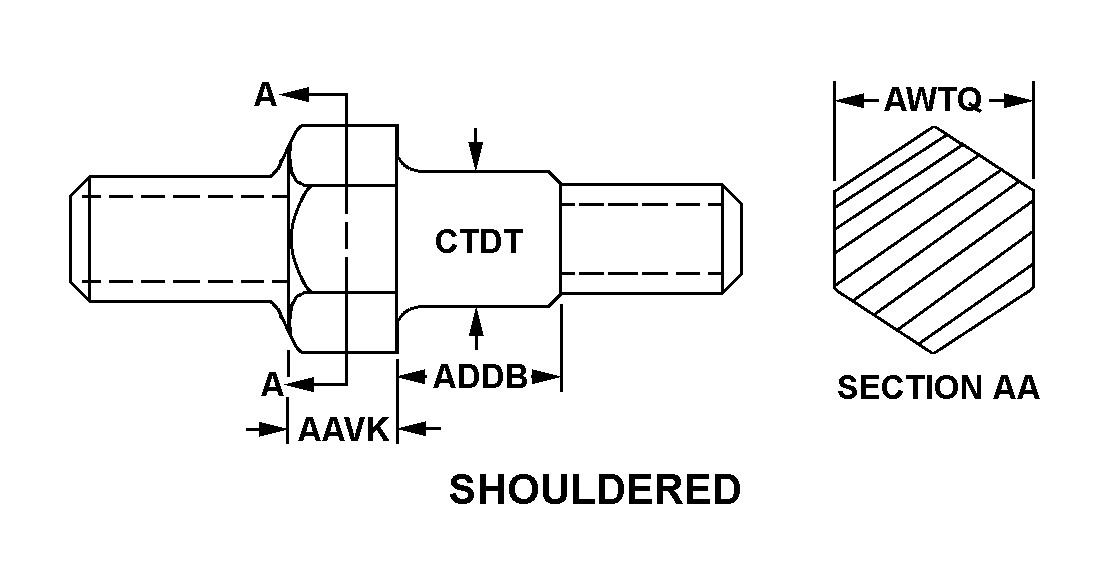
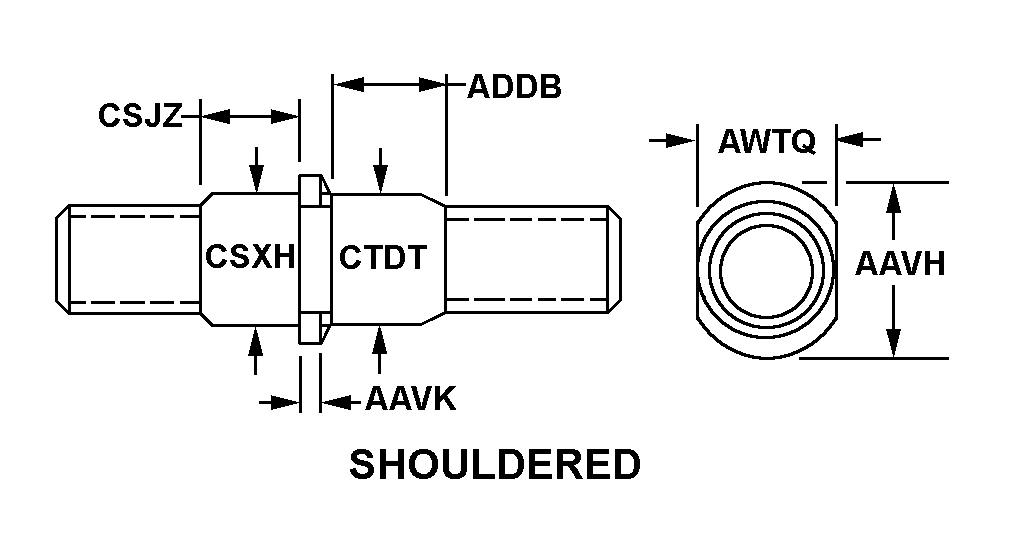
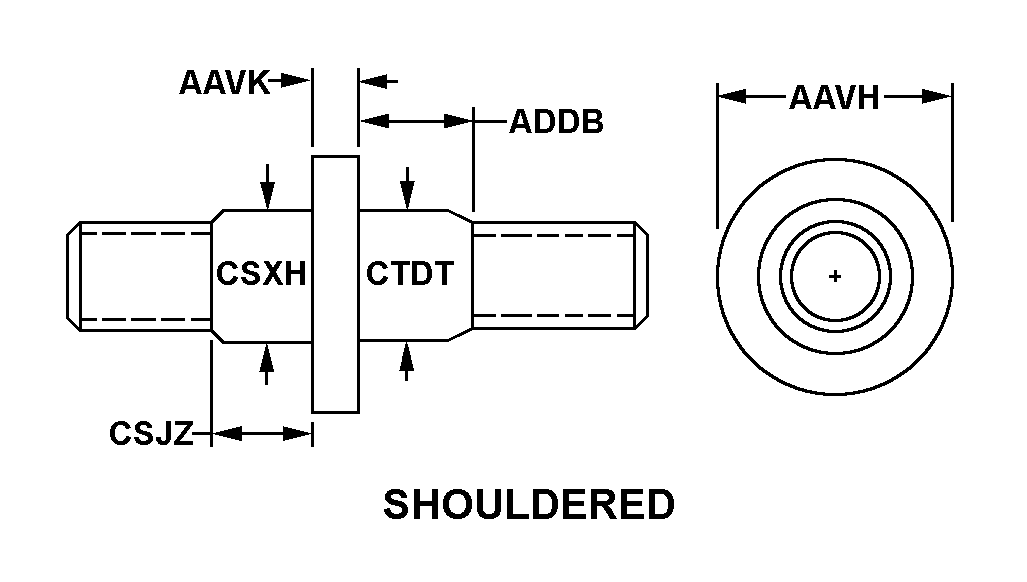
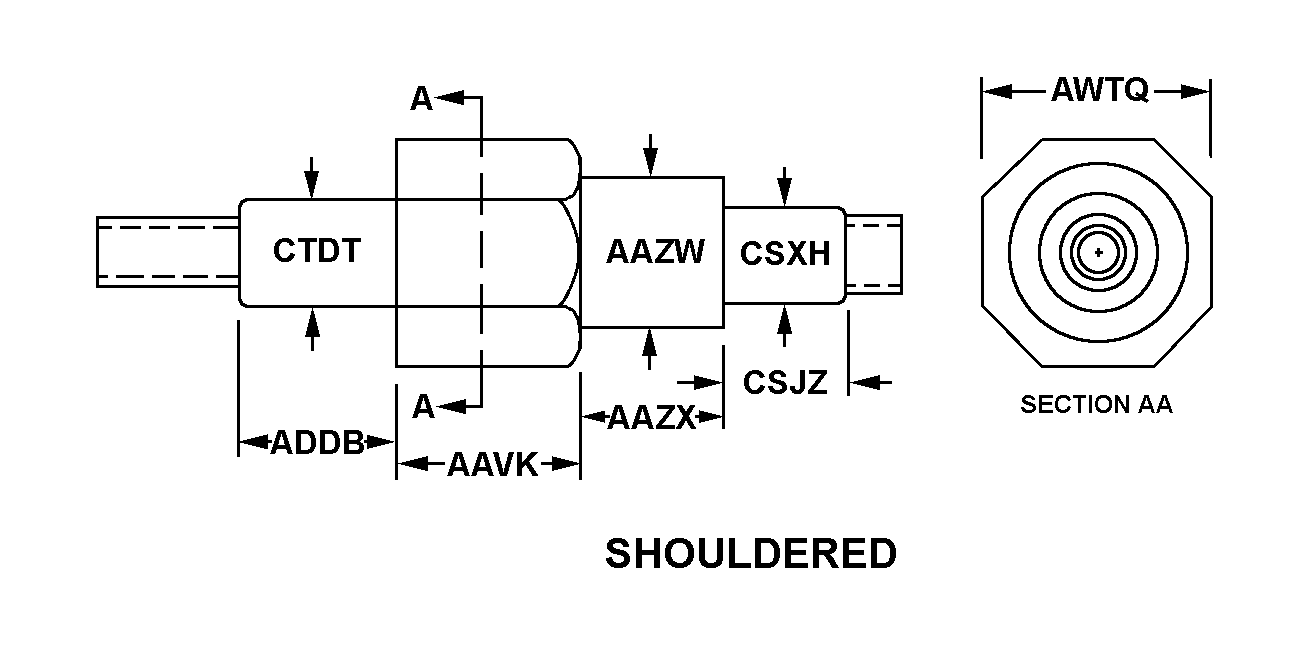
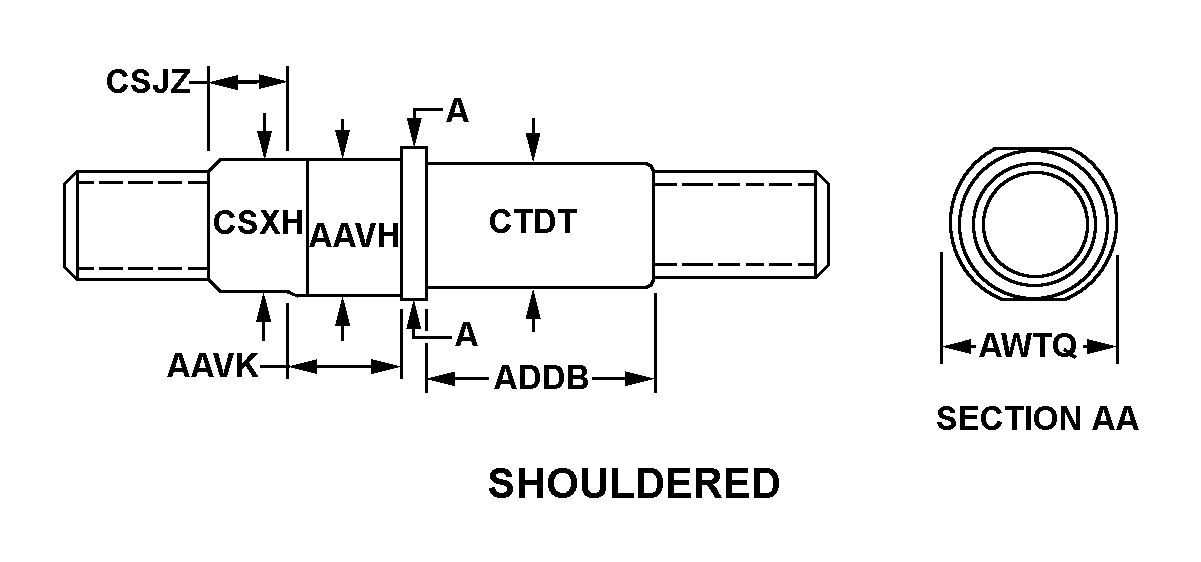
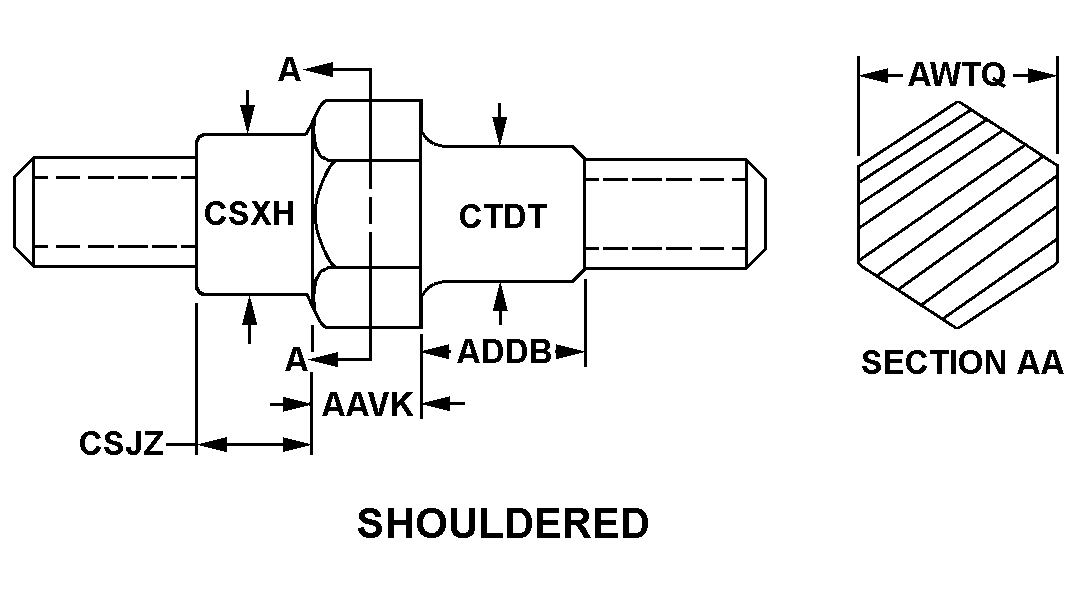
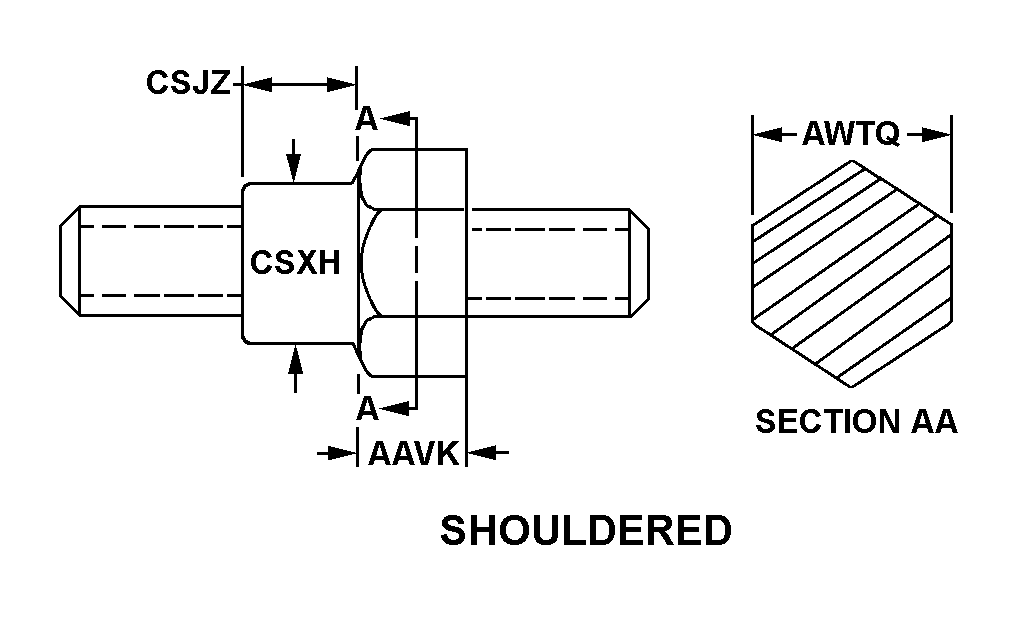
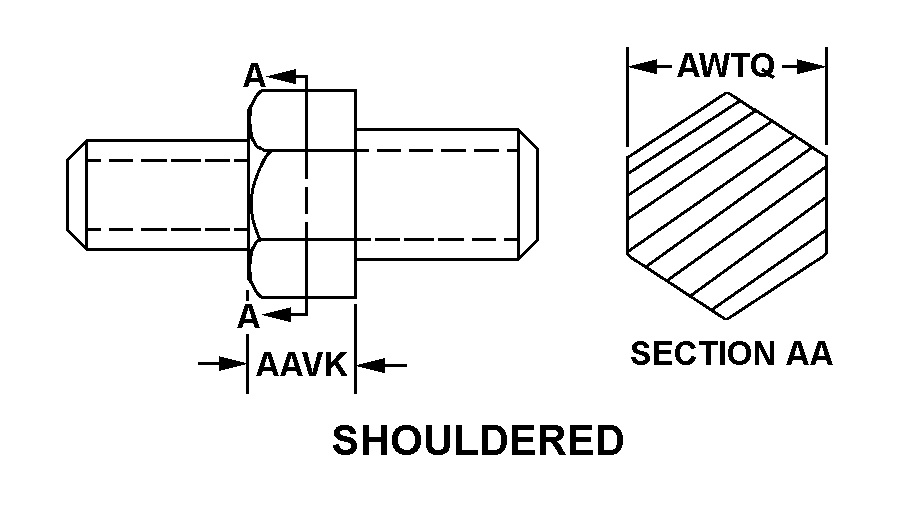

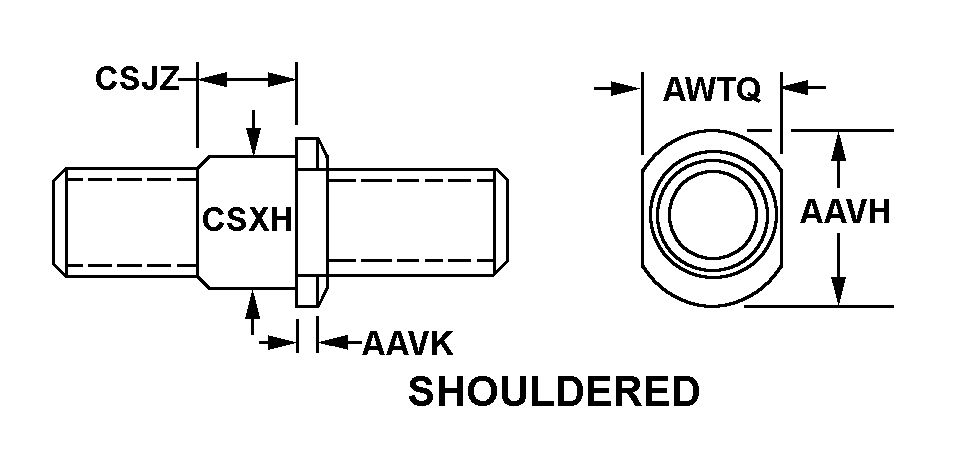
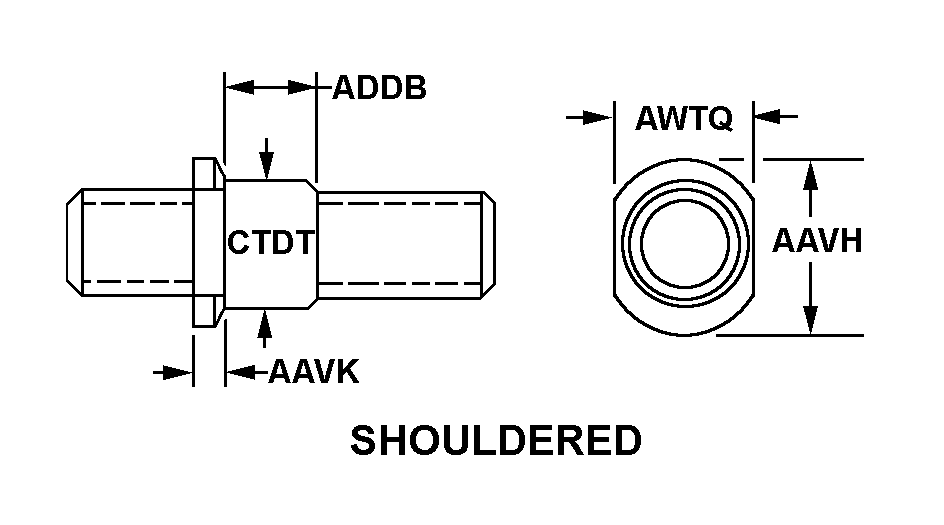
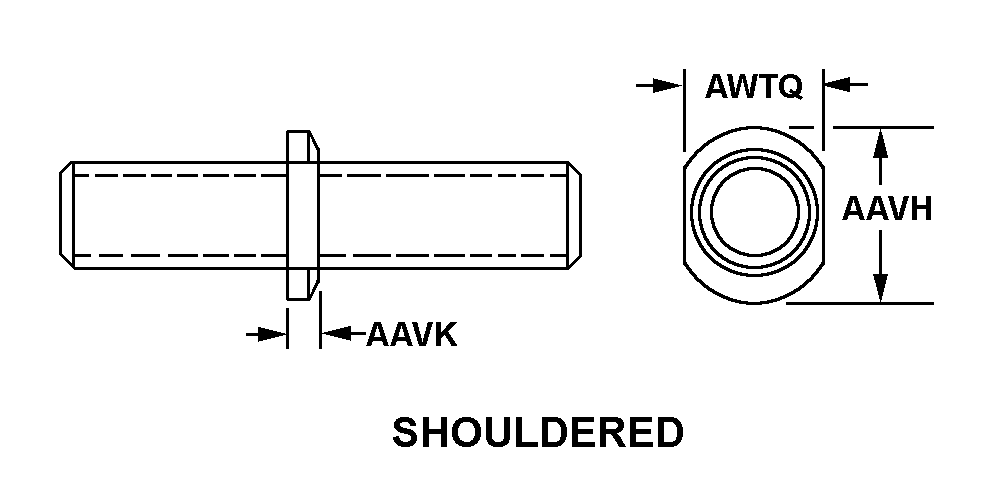
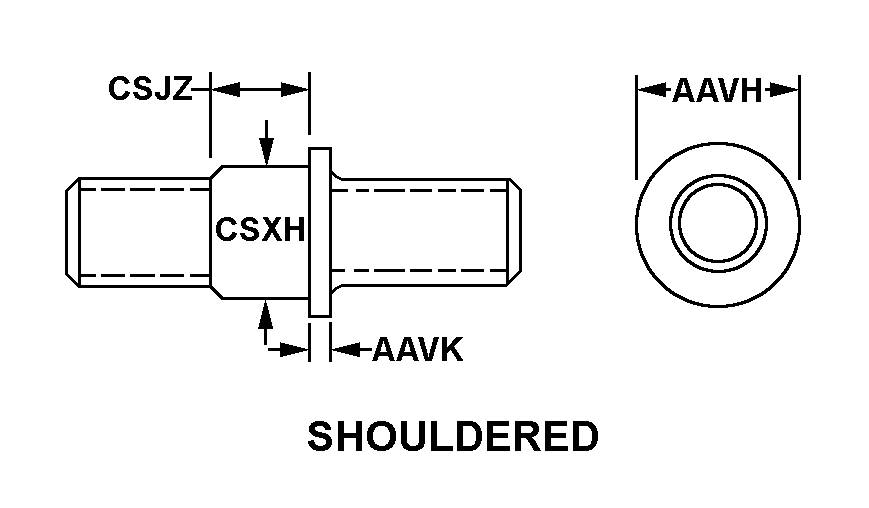
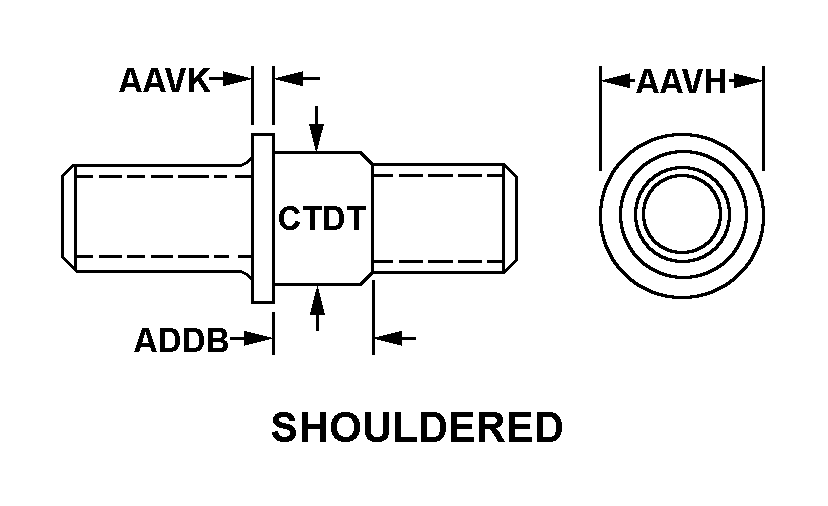
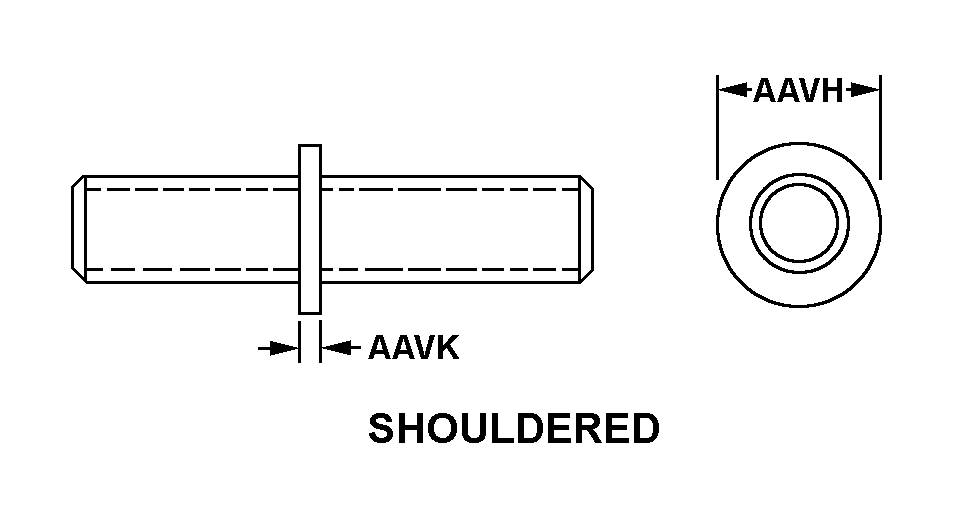
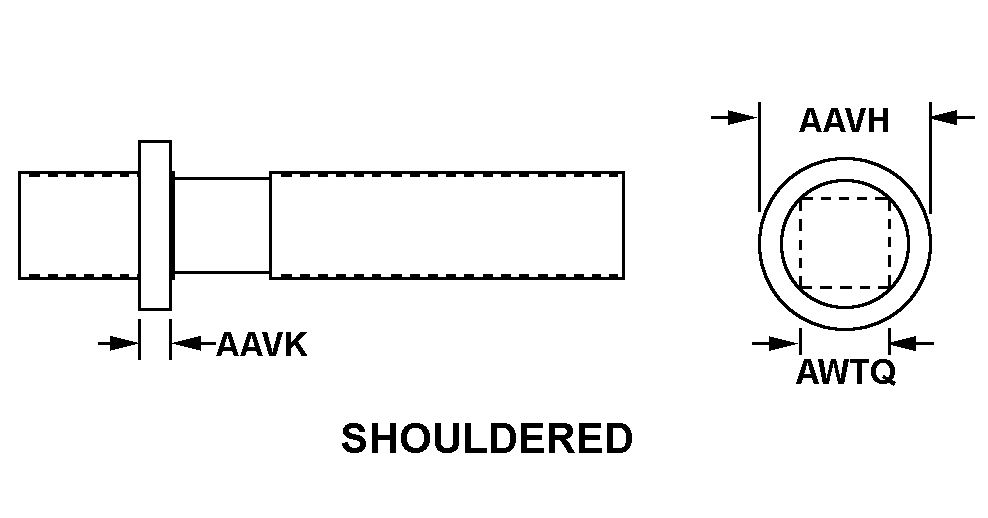
Definition Definition of approved item name (AIN): "STUD,SHOULDERED"
A headless fastener not exceeding 12 inches (304.8 mm) in length, threaded externally on both ends with threads of the same nominal diameter. All or part of the unthreaded section has a cross-sectional diameter greater than the nominal stud size plus 0.020 inches (0.508 mm). It may be thread relieved. See also stud, locked in.
5307-00-053-7862 Material Hazmat, Precious Metals, Criticality, Enviroment, and ESD
Indicates there is no data in the hmirs and the nsn is in a fsc not generally suspected of containing hazardous materials.
Precious metal content is unknown
The item does not have a nuclear hardened feature or any other critical feature such as tolerance, fit restriction or application.
Identification Codes
HMIC: Hazardous Material Indicator Code. A one position code that identifies a hazardous item.
PMIC: Precious Metal Indicator Code. A one position code which identifies items that have precious metals as part of their content. precious metals are those metals generally considered to be uncommon, highly valuable, and relatively superior in certain properties such as resistance to corrosion and electrical conductivity.
ESD: Electrostatic Discharge. Indicates if an item is susceptible to electrostatic discharge or electromagnetic interference damage. electrostatic discharge damage occurs when an accumulation of static electricity generated by the relative motion or separation of materials is released to another item by direct contact. electromagnetic interference damage occurs when an item comes into proximity with an electrostatic or magnetic field.
ENAC: Enviromental Attribute Code. Identifies items with environmentally preferred characteristics.
CRITL: Criticality Indicator Code. Indicates an item is technically critical by tolerance, fit, application, nuclear hardness properties, or other characteristics.






